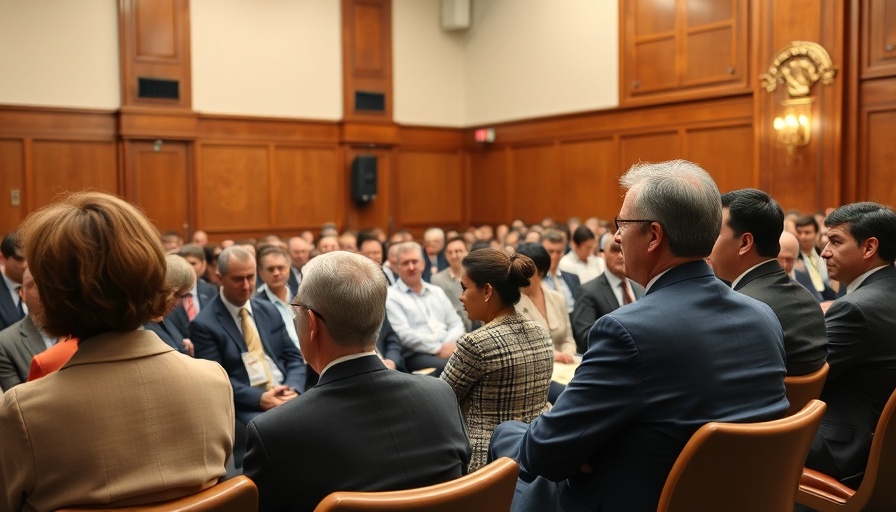
The Great Texas School Voucher Debate: What Citizens are Saying
As Texas lawmakers advance the school voucher bill known as House Bill 3, public discussions are heating up concerning its potential impacts. The proposed legislation promises families Education Savings Accounts (ESAs) to help cover private school tuition and homeschooling costs. However, opposition groups warn that this could adversely affect public schools while primarily benefiting wealthier families. This ongoing debate raises questions about the true beneficiaries of such a program and its implications for families across Texas.
Contextual Overview: The Role of School Vouchers
Education Savings Accounts have gained traction in various states, including Arizona and Florida, presenting families with a unique opportunity to choose the educational path they deem best for their children. However, heavy skepticism surrounds the effectiveness of these programs in promoting equitable access to quality education. Critics argue that voucher systems can lead to a decline in public school resources, exacerbate educational disparities, and favor those already in a position to afford private schooling. The crux of the debate lies not only in the financial allocations but in the fundamental question of educational freedom.
Key Financial Insights: What Does the Voucher Amount Really Cover?
If passed, House Bill 3 could allocate between $2,000 to $11,500 annually per child, depending on their educational circumstances. This range does not align well with the tuition rates of private schools in the Bexar County area, where costs can rise from $4,000 to $34,000 per year. The disparity raises significant concern over how families will supplement the vouchers if allocated funds fall short. It mirrors a broader concern noted in debates across multiple states: Do these vouchers democratize education opportunity, or do they further entrench existing inequalities?
Supporting Voices: The Case for Educational Choice
Proponents of the school voucher system argue that it empowers parents by allowing them to make educational choices that align with their children’s unique needs. Supporters highlight personal stories, like that of a San Antonio student who emphasized the importance of educational autonomy for families. Legislation like House Bill 3 aims to ground these assertions in the practicalities of educational funding, stating that it gives parents the ability to make decisions about schooling without governmental obstruction.
Counterarguments: What Are Critics Saying?
In contrast, opposition groups like the Intercultural Development Research Association (IDRA) are vocal about the potential negative consequences of diverting public funding to private institutions that may not meet specific educational standards. Their stance highlights a fundamental concern: that such a shift could potentially exacerbate existing inequalities. Moreover, critics point to studies from other states indicating that voucher programs have not consistently resulted in improved educational outcomes, particularly for low-income students. With limited accountability measures, the fear remains that taxpayer money would support an inequitable education system, prioritizing profit over quality education.
The Voices of Educators: What Do They Think?
The educational community has voiced its apprehension regarding the potential strain on public schools. Teachers and advocates express that diverting funds could undermine vital resources currently allocated to public schools that serve a high number of students requiring special education services. How can equitable education be ensured when public school funding diminishes? The lack of stringent requirements for private school enrollment only adds to their fears.
Future Outlook: Understanding the Path Forward
As public hearings unfold, it seems that the passage of House Bill 3 could usher in a profound shift in Texas education funding. However, the road ahead is rife with contention. Public sentiment may sway as education advocacy groups rally around specific issues, echoing concerns that some families may not have access to meaningful educational choices despite what the bill proposes. If passed, this legislation could reshape Texas’s educational landscape, potentially transforming long-standing traditions within the public school system.
The Emotional Impacts: Families on the Fringes
Families grappling with the realities of limited budgets, public services, and educational access share an emotional connection fostered by this ongoing debate. For some, educational vouchers symbolize hope for a better future, while others view them as a threat to their foundational public schooling. Understanding this emotional layer adds depth to the discourse, providing insight into the stakes involved for countless families.
Calls to Action: What Can You Do?
Texans seeking to influence this pivotal moment in their education system can engage actively through various avenues. Attend public hearings, contact local representatives, and participate in community discussions to share personal stories and perspectives. Raising awareness about the impacts of House Bill 3 is crucial for educators, parents, and all invested in Texas's future health and education system.
In conclusion, the school voucher debate in Texas is not merely about financial allocations; it is about the future of education for our most vulnerable populations. As this conversation evolves, staying informed and participating in civic dialogue will be key to ensuring that policies serve all Texas families rather than a select few.
 Add Element
Add Element  Add Row
Add Row 



 Add Row
Add Row  Add
Add 


Write A Comment